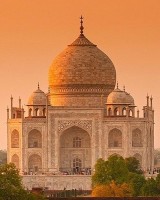Private guides and guided tours in Bhutan
Private guides in Bhutan
Private Guide in Thimphu - Eugene
(Member Since 2006) Excursions/tous in the following cities: Thimphu Languages: EnglishGelay and Anan went to high school together where they often day dreamt about life. During their school vacations, they would work as part time tour guides.
Private Guide in Thimphu - Pwangchu
(Member Since 2009) Excursions/tous in the following cities: Thimphu Languages: EnglishWe are a broker of incoming tours and trekking, specializing in tailor-made Bhutan Travel, adventure sports and tours throughout Bhutan. Our knowledge of the country and our travel experience is what gives us...

Bhutan
Language: Dzongkha
Currency: Indian rupee (INR)
Calling Code: +975
CAPITAL CITY OF Bhutan: Thimphu
LANGUAGE OF Bhutan: Dzongkha
CURRENCY OF Bhutan: Indian rupee (INR)
COMMENTS ABOUT Bhutan:
Bhutan is a small country in the Himalayas between China and India.
Cities : Thimphu (capital), Jakar, Mongar, Paro, Punakha, Phuentsholing, Samdrup Jongkhar, Trashigang, Trongsa
Best Places : Jigme Dorji National Park , Jigme Singye Wangchuk National Park, Royal Manas National Park , Trumshingla National Park, Bomdeling Wildlife Sanctuary, Khaling Wildlife Sanctuary, Phibsoo Wildlife Sanctuary, Sakteng Wildlife Sanctuary, Toorsa Strict Nature Reserve
Electricity : 220V/50Hz
Calling Code : +975
Time Zone : GMT +6
In 1865, Britain and Bhutan signed the Treaty of Sinchulu, under which Bhutan would receive an annual subsidy in exchange for ceding some border land. Under British influence, a monarchy was set up in 1907; three years later, a treaty was signed whereby the British agreed not to interfere in Bhutanese internal affairs and Bhutan allowed Britain to direct its foreign affairs. This role was assumed by independent India after 1947. Two years later, a formal Indo-Bhutanese accord returned the areas of Bhutan annexed by the British, formalized the annual subsidies the country received, and defined India's responsibilities in defense and foreign relations. A refugee issue of some 100,000 Bhutanese in Nepal remains unresolved; 90% of the refugees are housed in seven United Nations Office of the High Commissioner for Refugees (UNHCR) camps.
CLIMATE OF Bhutan: varies; tropical in southern plains; cool winters and hot summers in central valleys; severe winters and cool summers in Himalayas
RELIGION OF Bhutan: Lamaistic Buddhist 75%, Indian- and Nepalese-influenced Hinduism 25%
POPULATION OF Bhutan: 2,185,569>
ECONOMY OVERVIEW OF Bhutan: The economy, one of the world's smallest and least developed, is based on agriculture and forestry, which provide the main livelihood for more than 90% of the population. Agriculture consists largely of subsistence farming and animal husbandry. Rugged mountains dominate the terrain and make the building of roads and other infrastructure difficult and expensive. The economy is closely aligned with India's through strong trade and monetary links and dependence on India's financial assistance. The industrial sector is technologically backward, with most production of the cottage industry type. Most development projects, such as road construction, rely on Indian migrant labor. Bhutan's hydropower potential and its attraction for tourists are key resources. Model education, social, and environment programs are underway with support from multilateral development organizations. Each economic program takes into account the government's desire to protect the country's environment and cultural traditions. For example, the government in its cautious expansion of the tourist sector encourages the visits of upscale, environmentally conscientious visitors. Detailed controls and uncertain policies in areas like industrial licensing, trade, labor, and finance continue to hamper foreign investment.



 French
French Spanish
Spanish Russian
Russian






